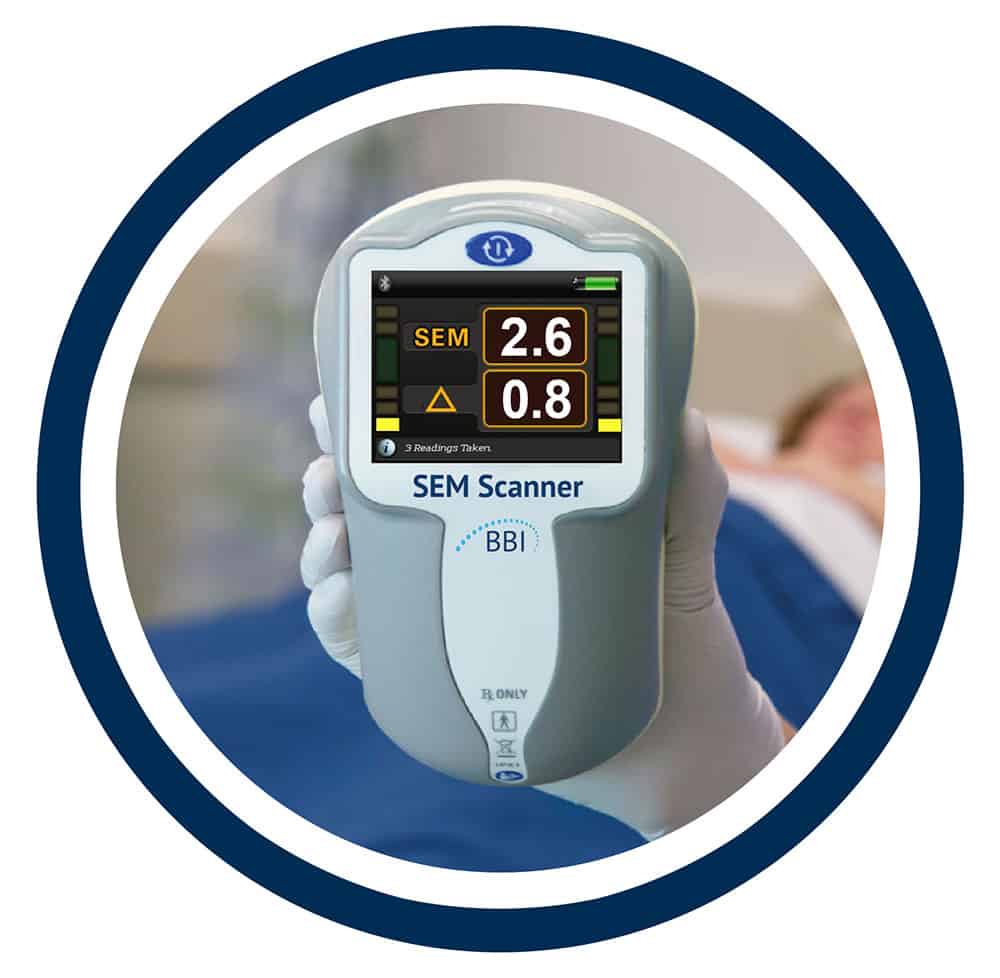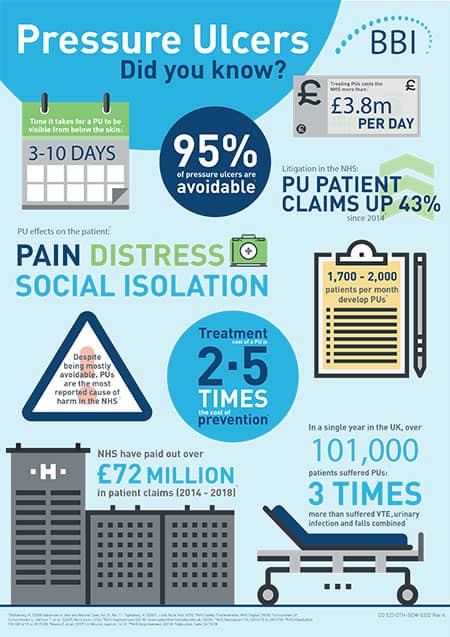Pioneering pressure ulcer scanner receives coveted health technology assessment that could transform pressure care


The SEM Scanner objectively alerts clinicians to specific anatomical areas of a patient’s body at increased risk for developing pressure damage, meaning patient risk assessments are performed before visible damage manifests at the skin surface – a world and clinical first.
MIBs are commissioned by NHS England and are designed to support NHS and social care commissioners and staff who are considering using new medical devices. The Briefing includes a description of the SEM Scanner technology, how it is used, its potential role in the pressure ulcer care pathway and also includes a review of relevant published evidence and the likely costs of using the technology.
BBI CEO Martin Burns welcomed the NICE decision, commenting: “Around 95% of pressure ulcers are preventable. Our singular objective is to reduce pressure injury incidence by helping clinicians make prevention real. Where we have seen our SEM Scanner in use, the results have been dramatic.
“This briefing will help avoid the need for organisations to produce similar information locally, saving staff time and resources. When you consider that the average prevention cost of using the SEM Scanner works out at just £1.50 per patient per day, we believe that we have game-changer technology available now in the UK.”
2018 data from NHS Improvement showed that treating pressure damage costs the NHS almost £4 million per day; with 1,700-2,000 patients per month developing pressure ulcers.
Figures obtained under a Freedom of Information request from NHS Resolution reveal the increasing financial impact of pressure ulcer claims against NHS Trusts from the year 2014/15 to 2017/18:
- 43 percent increase in the number of claims received for pressure ulcers from 279 to 399
- A total of £72,404,574 paid in claims during these four years and an increase of 53 percent from £13,618,669 (2014/15) to £20,828,669 (2017/18)
Glenn Smith, Nurse Prescriber at St Helen’s Medical Centre was contacted by NICE as an expert adviser. Glenn was the Tissue Viability and Nutrition Senior CNS/Patient Safety Lead in 2017 when the SEM Scanner was in use at the Isle of Wight NHS Trust.
Glenn commented: “I am aware that the SEM Scanner has been available in the UK now for a few years and that BBI have been gradually building their clinical evidence – this review from NICE, which is one of the highest health technology assessments in the UK, now supports the fact that the SEM Scanner could be a frontline technology that could transform how we care for patients at risk of pressure ulcers.”
The Marie Curie Hospice, Newcastle, was the first to deploy the SEM Scanner in a hospice setting, starting with a six-month trial in November 2017 which helped reduce incidences of pressure ulcers by nearly 50 percent. This led to them winning an Innovation in Care Award 2018 from Hospice UK.
The SEM Scanner has received numerous industry awards, including the Journal of Wound Care’s Most Innovative Product (2018) and the Health Service Journal’s Partnership Award for Best Innovation in Medical Technology (2018).
BBI’s Medtech Innovation Briefing can be viewed here
BBI is a pioneer in modernising healthcare with biometric sensor technology for early detection and monitoring of chronic, preventable conditions in collaboration with clinicians.

